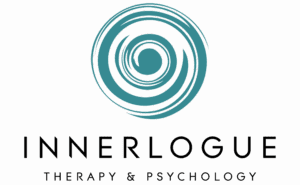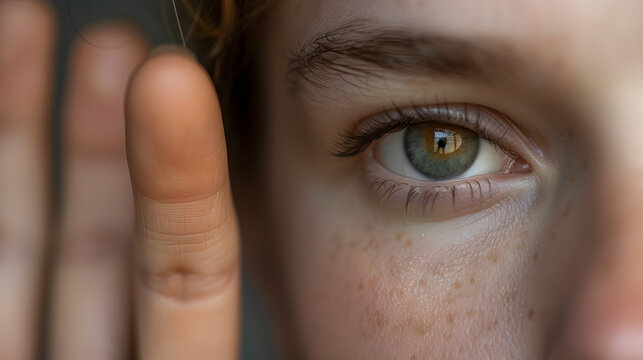Anticipatory anxiety is future oriented. It’s that uneasy feeling we get when expecting a potential threat, whether it’s real or just in our heads. It might be the rush of adrenaline before an important meeting or flight, a sense that you don’t want to leave the house to go hang with your friends, go to the store, or attend a concert in case you might say something wrong, must wait in line, or feel out of place. Any of these experiences will cause uncomfortable emotions, and a fear of experiencing these emotions is the hallmark of anticipatory anxiety. Winston & Seif (2022) describe it as “bleeding before you have been cut,” capturing the torment it brings into our lives. It is the idea that we cannot control outcomes, the “what if” thinking, or the belief that we won’t have the resources to deal with real or imagined challenges resulting in avoidance or delaying situations identified as potential hazards. It is this avoidance that perpetuates anticipatory anxiety.
Anticipatory Anxiety
Variations of Anticipatory Anxiety
Imagination Based
In this type of anticipatory anxiety, catastrophic thinking is featured prominently—conjuring up the worst outcomes in situations that will likely never happen. For example, thinking that a family member will succumb to an accident after hearing about a tragic story on social media, causing you to worry needlessly every time they leave the house.
Memory Based
Memory based anticipatory anxiety is grounded in actual events from our lives, forming a conditioned response. For instance, consider the experience of intense emotions when planning a visit to the local zoo, coupled with an unexplained fear of large birds. The connection between the initiating event, and the response years later may not even be consciously realized. The event that preceded this response was that as a child, you were briefly chased by a peacock at the zoo, laying the foundation for the current anxiety leading up to the trip, and the unsettling realization that you will be exposed to large birds.
Traumatic Trigger Based
This kind of anticipatory anxiety has arisen out of real events and stimuli from the past. Imagine that you were subjected to frequent verbal abuse from your father who had a loud, booming voice. In the present day, you feel apprehensive about visiting your best friend at home due to his partner who has a voice that is highly reminiscent of your father’s. You visit only when the partner is not around, causing your friend to wonder why you don’t care for them, and preventing you from becoming closer than you otherwise would.
Sensitivity to Expected Anxiety
This involves the tendency to fear the experience of fear. A person with this sensitivity does not trust their ability to tolerate uncomfortable emotions and feel a deep distrust in their ability to rise to the occasion, especially in novel situations. Consider someone who has been singing their entire lives is invited to a singing competition in front of a live audience. They know they have a gift; however, they are distressed by the fluttering in their stomach and increased perspiration when they sing in front of others. The day of the competition, they call in sick and report that they are not able to join the production.
Mood Based
When people are experiencing biological changes for instance, as with mood disorders such as depressive episodes, hormonal changes, or sleep disturbances, it can be difficult to function with the same level of confidence and ease as was experienced prior to the change. Here is the complete guide to find the best Psychologist. The hormonal changes associated with post-natal depression is an example here, as individuals who are dealing with this reality may be unaccustomed to feeling this way. They may be more isolated than they have ever been before, and distraught by their intense feelings.
Anxiety is an adaptive function
When anxiety is at manageable levels or fits the fight-or-flight model based on past knowledge or current cues (the threat is appropriate to the response) it is considered adaptive—it boosts our survival skills or drives us to be at our best. However, if anticipatory anxiety interferes with our ability to thrive, causing us to delay or avoid, paired with intense physical reactions, it becomes maladaptive. In modern life, the sense of risk experienced by those with anticipatory anxiety does not match the reality many of us are dealing with, leading to unnecessary distress that can be effectively addressed.
Where Does Anticipatory Anxiety Come From?
Anticipatory anxiety stems from a mix of early environmental influences and genetic factors as noted by (Grupe & Nitscke, 2012). As time passes, our less-than-helpful reactions to perceived threats gain strength through frequent use. Unless we establish new strategies to navigate life more effectively, we will persist in reinforcing these distressing thoughts and feelings and replicating behaviors that don’t serve our well-being at all.
The Good News – Our Brains are Resilient
The important thing to understand about anticipatory anxiety is that anxiety by itself is not dangerous, and through understanding your own unique relationship with anxiety, you can create lasting positive change in your life. Exposure therapy, coupled with response management techniques, are effective approaches. Gradual exposure to feared situations helps desensitize anxiety responses over time. By delaying compulsive behaviors and facing their fears, individuals break the cycle of anticipatory anxiety and avoidance. Finding inner peace amidst anticipatory anxiety is achievable with the right strategies. By challenging distorted thinking, developing coping mechanisms, and seeking professional support, individuals can reclaim their lives and thrive in the present moment. If you’re struggling with anticipatory anxiety, don’t hesitate to reach out – I’m here to support you on your journey towards healing and resilience.
Anticipatory anxiety about attending counselling sessions is common and can stem from fears about sharing personal struggles, uncertainty about the therapeutic process, or concerns about being judged. This anxiety can feel overwhelming, making it difficult for individuals to take that first step towards seeking help. To ease this process, Innerlogue Therapy & Psychology offers virtual counselling sessions across Alberta, making support accessible from the comfort of one’s home. Whether you’re in Calgary, Edmonton, Airdrie, Banff, Camrose, Canmore, Chestermere, Okotoks, or other rural areas, Innerlogue Therapy ensures that you can receive the help you need, with a flexible and convenient approach to care.
This post is written by Lori Johstone
FAQs
1. How to get rid of anticipatory anxiety
- Challenge Negative Thoughts: Replace catastrophic thinking with rational, positive perspectives.
- Practice Relaxation Techniques: Deep breathing, progressive muscle relaxation, or mindfulness.
- Focus on the Present: Engage in grounding exercises to shift focus from future worries.
- Set Small Goals: Gradual exposure to feared situations to build confidence.
- Limit Avoidance: Confront triggers instead of avoiding them, to reduce anxiety over time.
2. How can therapy help in managing anticipatory anxiety?
Therapy provides a supportive environment to:
- Understand the root causes of anxiety.
- Learn practical coping strategies to manage stress.
- Build emotional resilience through tailored techniques like mindfulness and exposure therapy.
3. Can Cognitive Behavioral Therapy (CBT) reduce anticipatory anxiety?
Yes, CBT is highly effective. It helps identify and challenge distorted thoughts, develop healthier responses to triggers, and build confidence in handling uncertain situations.
4. How can therapy help in managing anticipatory anxiety?
Therapy equips individuals with tools to:
- Recognize anxiety patterns and triggers.
- Reframe irrational fears into manageable thoughts.
- Build relaxation and stress-management techniques.
- Gradually face fears to reduce avoidance behaviors.




